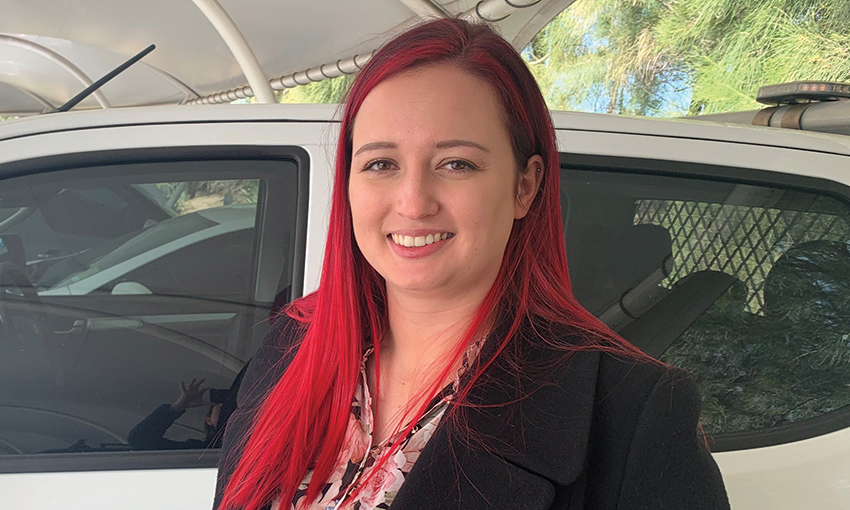What does your work as a project engineer involve?
I deliver projects. I’m in what’s called the Asset Services team, and within the Asset Services team we have a team called Sustaining Capital, which essentially means we do what’s necessary to sustain the port and keep it going. I help look after everything you can physically see at the port. That includes roads, bridges, wharves, utilities and things like that. It’s quite a diverse and expansive area, and I’m in the team that tries to hold it all together and keep it running.
Tell me about what you studied at university.
When I graduated high school, I started a law degree. Two years in, I realised it wasn’t for me. Engineering stuck out to me after that because I have a lot of engineers in my family. It’s who we are and what we enjoy. I guess I tried to swim upstream and failed. In high school I wanted to be an architect, so structural engineering seemed as close to architecture as I could get without actually being an architect. I had a very inflated sense of what engineering was. I thought I was going to go build the Burj Khalifa.
How did you end up working at the Port of Brisbane?
You need some sort of practical experience before you graduate from an engineering degree. I was looking for work experience opportunities and I came across an ad for an internship at Port of Brisbane. I honestly had no idea where the port was, or what Port of Brisbane was at all. I didn’t know until the day of my interview, and I’m very glad I found out.
What was it like transitioning into this new environment?
What I love about working at the port is the varied range of engineering disciplines out here. There are no skyscrapers at the port, but we’ve got roads, utilities, technical aspects and land development. At the beginning, I spent a lot of time shadowing people on my team and learning the ropes from senior project managers. My very first project was to repaint the driveway in front of our office building. I just worked my way up from there. The projects got bigger and bigger, and I naturally progressed to where I am now. I’ve also been supported by a lot of good mentors.
Were there projects you worked on at the port that were particularly memorable?
I replaced a couple of pontoons at our tug base here. It was an extensive project – it went all the way from managing the design to managing the installation. It was a real juggling act with operational needs and deadlines, and it was the probably the first time I truly had to experience all the moving parts at once. There were times I honestly didn’t think I was going to get it done by my deadline. Everything was okay in the end, but I think I got a few grey hairs in the process. That project changed me as an engineer. I approach projects differently now.
What’s the most important lesson you’ve learned from a mentor?
It’s a combination of learning how to think on your feet, but also having the confidence to be able to make a call without needing someone to okay it first. There are times where it’s better to ask for advice, but you have to trust you also know what you’re doing and you’re there for a reason. You’re qualified to make decisions within reasonable limits. It took me a while to learn that, but I think I’m getting there.
What passions do you have outside of engineering?
I really enjoy gardening and sewing. I have five or six plants on my desk at work that I like to tend to, and I have heaps at home. I picked up sewing more recently. I’ve been to a lot of weddings recently – I’m at that time of my life where a lot of my friends are getting married and there’s a wedding every second month – and I’ve just started making my own dresses for those occasions. I could never find something I liked or that fit what I wanted, so I thought, “I’m going to make it myself”. I guess, in essence, that is engineering.
Tell us about your dream holiday.
I would go to Japan. I’ve already been there, so it’s kind of cheating, but I loved it so much I’ve been twice. There is so much to see and do in the country. You fly into Tokyo, experience the city, then after a while you head to Osaka, which isn’t as metropolitan. It’s such an impressive country; the vibe, the culture and the people are just fantastic. Then there’s the shopping and food … there’s no downside.
Do you have travel advice for anyone you’ve just inspired?
Definitely buy a rail pass for the bullet train, then put your finger on a map and go. The rail pass is golden.
This article appeared in the December 2022 edition of DCN Magazine.





